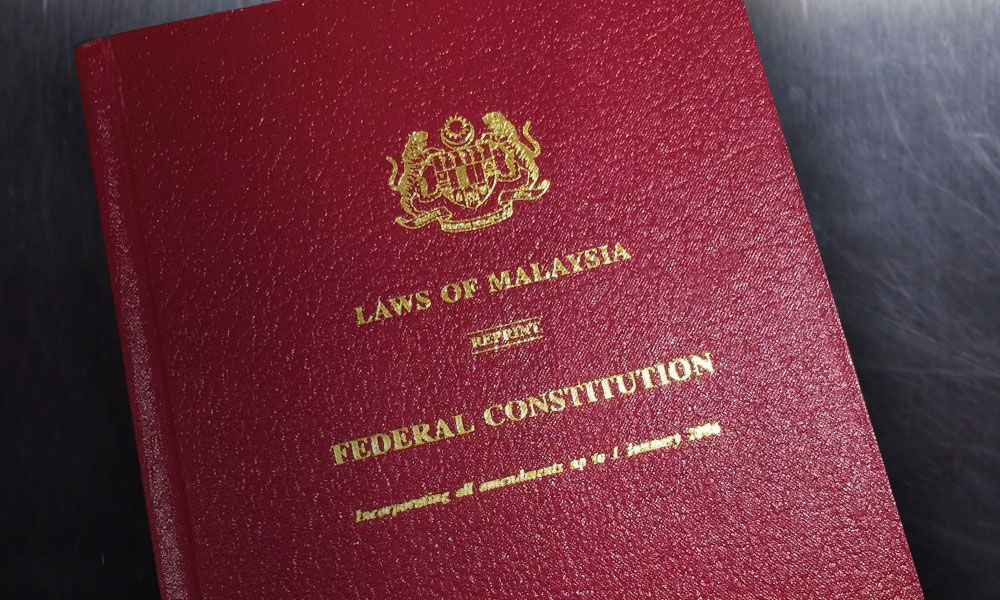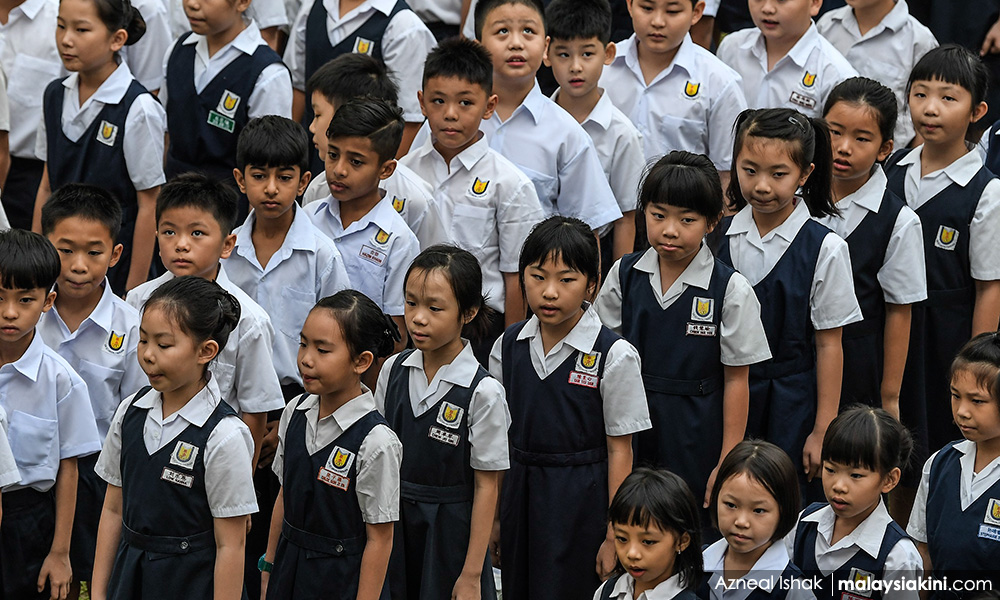All languages are sources of social cohesion intellectual growth, and community development. To debate about which language to master, versus which “mother tongue” to suppress, is an arrogant and selfish endeavour.
In Malaysia, these debates are the result of ethnocentric and supremacist ideologies. Over the decades, they have divided our society. This is a major reason why our nation continues to be in a deep crisis.
A majority of us blame our politicians, and rightfully so.
The debate about language should centre on two things: our national identity, and the current global lingua franca. Once we understand these two concepts, we can develop healthy strategies that would unite us as a nation.
A lingua franca is a language used as common or commercial tongues among peoples of diverse speech. Today, it is English. Tomorrow, it could be Mandarin. Let us remember how English started in the first place.
During the era of European colonialism, English began to “conquer” the world, alongside Spanish, which was also spread through colonisation. For many other reasons, including colonialism and the superior naval power of the British, the English language succeeded in spreading across the globe.
This was further enhanced at the end of the 18th century, when both Britain and the United States overtook other European nations as colonial powers. These two English-speaking countries expanded the use of English through their economic, political and social colonisation.
With China’s rise, doing commerce across borders may result in more people mastering Mandarin. Whether it develops into a global lingua franca is yet to be seen.
Throughout the era of colonisation, indigenous languages continued to thrive in the colonies. According to Italian filmmaker Federico Fellini, “a different language is a different vision of life”.
Therefore, to deprive people of their right to use their own language is to deprive them of one of the basic characteristics by which they define themselves.
Malaysia's main problem is...
Language allows people to have meaningful relationships with other human beings. It reflects a community connected with group culture and identity. Within the larger context of identity and nation-building in Malaysia, languages can connect, rather than divide.
However, after more than 60 years of independence, Malaysians are still arguing about “national identity”.
Our main problem is that our politicians are not serious about ensuring a stable sense of belonging. They rather use language and religion to distract from this fundamental ingredient of national cohesion and patriotism.

Both language and religion have been highly politicised for the political survival of these elites. Let us look at the Federal Constitution, which ensures the protection of vernacular and indigenous languages.
Article 152(1) is clear that the national language shall be Malay (Bahasa Malaysia). No Malaysian disputes this. Article 152(1)(a) states “provided that no person shall be prohibited or prevented from using (otherwise than for official purposes), or from teaching or learning, any other language”.
Article 152(1)(b) states “nothing in this clause shall prejudice the right of the federal government or of any state government to preserve and sustain the use and study of the language of any other community in the federation”.
Therefore, it is the duty of the federal government to encourage the use and study of languages other than Malay. However, the logic that our leaders operate under, is that Malaysia cannot be a stable nation unless we are united under a common language and religion. This is not true.
Political mischief
The diverse religions and languages in our country have not been the source of our polarisation. Our ethnic and religious cleavages are due to political mischief.
It is also about political will; whether our elected leaders listen to the reasonable demands of the citizens who voted them into their positions of authority, in the first place.
The contentious issue of language and vernacular schools is not complicated at all. All it takes is a firm understanding of our Constitution, the political will to accommodate what the ordinary Malaysian needs and an honest principle of integrity towards nation-building.
What are our national goals? If it is to be a united and progressive nation, where all ethnicities and religions co-exist without prejudice and in harmony, then we will all willingly share a common goal.
First, given the richness of our linguistic heritage, our politicians should be intelligent and honest to recognise the importance of English, and insist that Malaysians master it. They must set the example.
Second, our leaders should also insist that Malaysians do not neglect our vernacular and indigenous languages, since these traditions are what makes Malaysia a uniquely plural and magnanimous society.

Third, if our leaders prefer a disunited society, then continue to divide and rule. Insist that Mandarin, Tamil and our scores of indigenous languages need to be suppressed.
Insist that Malaysia can only progress if Malay is prioritised over all other languages, including English. Continue to fuel debates about why English is just a “colonial language”, that is not important for our “Muslim” nation.
Finally, it is equally damaging that many English language apologists in Malaysia insist that Malay is not worth mastering. They claim that any other language besides English is “unscientific”. They swear that Malay is not progressive, embarrassing and not worth cultivating.
This is insulting and equally destructive. The Malay language is attacked, rather than the scientist, scholar or politician who fail to use Malay as an instrument for growth and development.
The ones who should be condemned
The “Malay language bashers” should instead condemn the scientists, scholars and politicians who refuse to adapt and evolve Malay to contemporary global challenges.
So, rather than condemn Malay to the graveyard of superfluousness, condemn the indifference of the professionals, including the politicians, who are supposed to keep it alive and worthy.
It is this ignorant and slavish emotionalism that further inflames our fractured nation. For those who denigrate the Malay language, they claim it is like many other “non-Western” languages that are not major sources of new concepts and theories in the sciences and social sciences.
However, this does not mean Malay should be sidelined. It is our identity. It also does not mean Malay cannot or should not be enriched with new concepts that empower it to remain relevant in the 21st century.
In human civilisation, languages have died natural deaths over millennia. What we must worry about is when languages are forced into an unnatural death by politically expedient policies that are tainted by racist and bigoted ideologies. The repercussions of this are too heavy a price to pay, especially in Malaysia.
Society becomes fractious, violence can erupt and lives will be disrupted for generations. Malaysians must master English, uphold the sanctity of the Malay language and cherish the survival of Mandarin, Tamil and all our indigenous languages.
If Malaysians need to master at least three languages or more to be successful, then do it without politicising the process. - Mkini
SHARIFAH MUNIRAH ALATAS is an academician with zero tolerance for corrupt, arrogant and frivolous leadership.
The views expressed here are those of the author/contributor and do not necessarily represent the views of MMKtT.




No comments:
Post a Comment
Note: Only a member of this blog may post a comment.